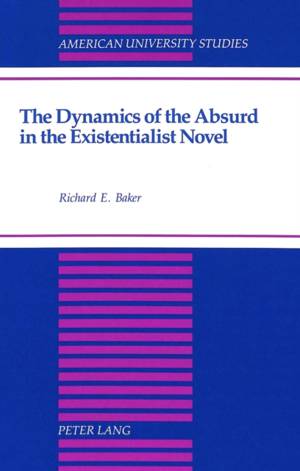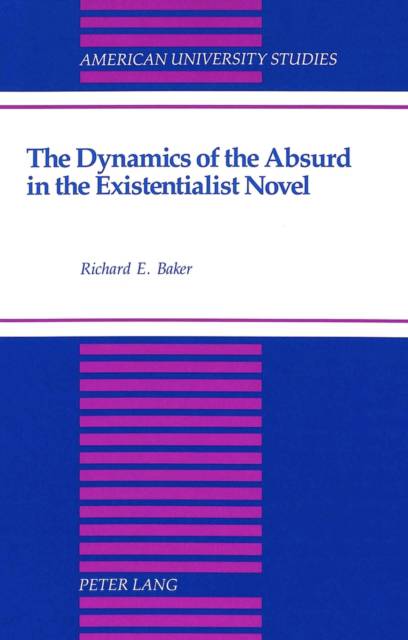
Je cadeautjes zeker op tijd in huis hebben voor de feestdagen? Kom langs in onze winkels en vind het perfecte geschenk!
- Afhalen na 1 uur in een winkel met voorraad
- Gratis thuislevering in België vanaf € 30
- Ruim aanbod met 7 miljoen producten
Je cadeautjes zeker op tijd in huis hebben voor de feestdagen? Kom langs in onze winkels en vind het perfecte geschenk!
- Afhalen na 1 uur in een winkel met voorraad
- Gratis thuislevering in België vanaf € 30
- Ruim aanbod met 7 miljoen producten
Zoeken
Omschrijving
In 1942, the French author Albert Camus, in an essay titled The Myth of Sisyphus, wrote a comprehensive analysis of the absurd to explain his novel The Stranger. Using Camus's essay as a matrix for the absurd, this book is a rigorous examination of other contemporary existentialist writers and their novels: the French writer Jean-Paul Sartre provides us with his important absurdist text Nausea; the Spanish writer Miguel de Unamuno, Mist; and the two American writers Richard Wright, Native Son and Walker Percy, The Last Gentleman. Since The Dynamics of the Absurd in the Existentialist Novel is a comparative study, different authors are invoked from various cultures to demonstrate the vast viability of Camus's criteria for the absurd and to determine the interpretive results which can be gleaned from its application.
Specificaties
Betrokkenen
- Auteur(s):
- Uitgeverij:
Inhoud
- Aantal bladzijden:
- 152
- Taal:
- Engels
- Reeks:
- Reeksnummer:
- nr. 31
Eigenschappen
- Productcode (EAN):
- 9780820420790
- Verschijningsdatum:
- 1/12/1993
- Uitvoering:
- Hardcover
- Formaat:
- Genaaid
- Afmetingen:
- 237 mm x 160 mm
- Gewicht:
- 359 g

Alleen bij Standaard Boekhandel
+ 99 punten op je klantenkaart van Standaard Boekhandel
Beoordelingen
We publiceren alleen reviews die voldoen aan de voorwaarden voor reviews. Bekijk onze voorwaarden voor reviews.









